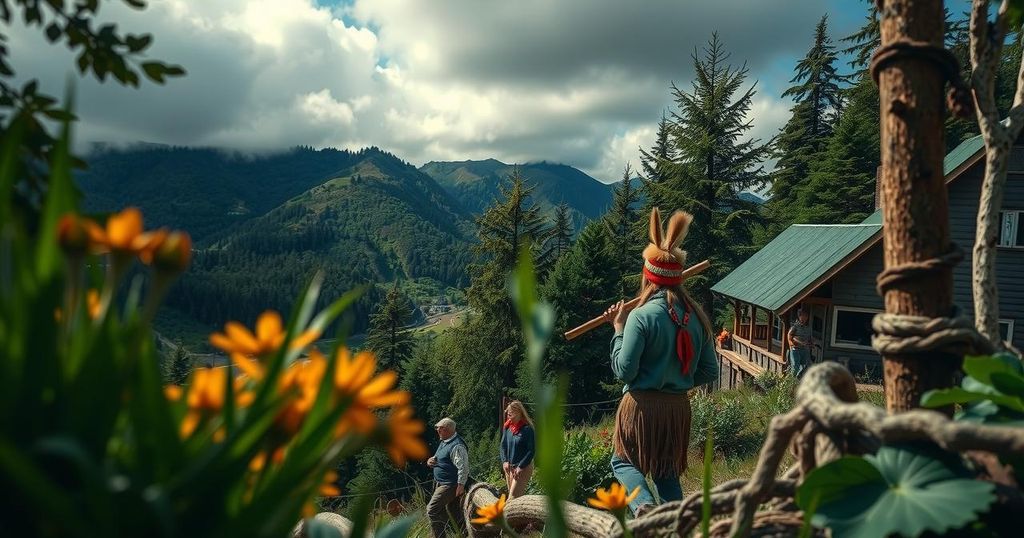Collaborative Approaches: Supporting the Karuk Tribe Against Climate Challenges

Danielle Touma, a research professor, is collaborating with the Karuk Tribe in Northern California to develop strategies addressing climate challenges, such as wildfires and droughts. Drawing from her background in civil engineering and earth system sciences, Touma plans to integrate traditional tribal knowledge with modern scientific models to enhance climate resilience. This partnership aims to create a sustainable blueprint for Indigenous collaboration in addressing environmental difficulties.
Danielle Touma, a research professor at the University of Texas, Austin, has redirected her efforts from conventional research to the field, particularly focusing on the Karuk Tribe located in Northern California. Drawing from her experiences growing up in the drought-affected Middle East, Touma seeks to apply her expertise in civil engineering and earth system sciences to address the tribe’s challenges posed by climate change. Her work emphasizes the integration of traditional ecological knowledge with contemporary science to foster resilience against extreme climate events such as wildfires and droughts.
In collaboration with academics at the University of Washington and the National Center for Atmospheric Research, Touma aims to develop a hydrology model that will enhance the Karuk Tribe’s understanding of wildfire risks and their implications for cultural practices and livelihoods. Recognizing the tribe’s extensive knowledge of their land, Touma proposes a climate projection framework that merges their observations with Earth system model simulations. This approach intends to equip the tribe with the necessary tools to anticipate and mitigate risks associated with climate variability.
The increasing frequency of severe wildfires in California underscores the urgency of this initiative, as large fires have risen significantly over the past two decades. Touma’s partnership with the Karuk Tribe aims not only to empower the community but also to establish a model for collaborative research between scientists and Indigenous populations. By emphasizing the importance of co-creating research, Touma advocates for a paradigm shift in addressing the impacts of climate change on marginalized communities, exemplifying a comprehensive approach that values both scientific rigor and Indigenous wisdom.
The article addresses the significant challenges that the Karuk Tribe faces due to climate change, particularly in relation to extreme weather events such as wildfires and droughts. As Indigenous populations are disproportionately affected by the effects of climate change, they possess unique insights and traditional ecological knowledge that can be critical in developing effective climate resilience strategies. The collaboration between scientists like Danielle Touma and the Karuk Tribe highlights the importance of integrating modern scientific practices with Indigenous knowledge to address environmental challenges more effectively.
In conclusion, Danielle Touma’s collaboration with the Karuk Tribe represents a vital effort to confront the multifaceted challenges posed by climate change. By merging contemporary scientific methodologies with the tribe’s profound understanding of their land, this partnership not only aims to increase awareness and preparedness for extreme climate events but also sets a precedent for future collaboration between Indigenous communities and scientific researchers. This innovative approach seeks to create a more sustainable and resilient future for vulnerable populations affected by climate disruption.
Original Source: thestoryexchange.org






